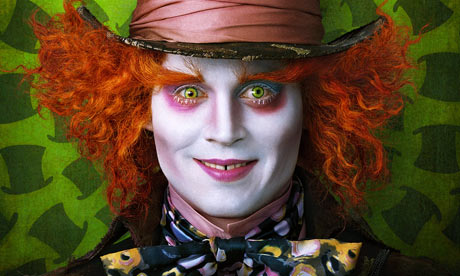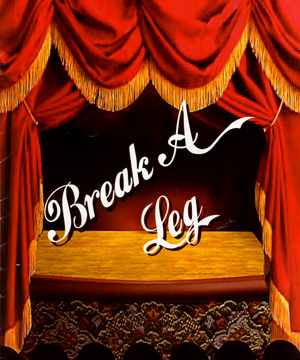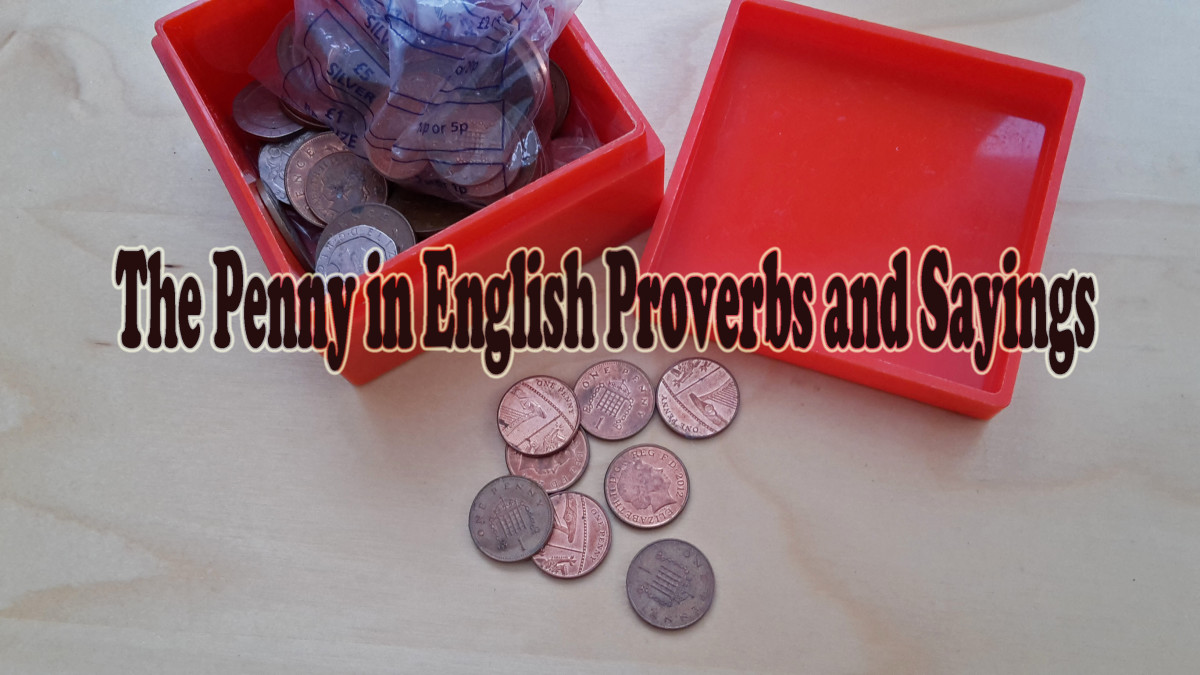Where Do Sayings Come From? The Bizarre Stories Behind Idioms.
Everyday we use these quaint and common sayings and phrases. We may know the gist of what they mean in our current English language but where did they come from? Read on to find out some of the bizarre stories behind expressions you use everyday.

As Mad As A Hatter
As mad as a hatter is used today to refer to someone who is crazy. There are a few theories on this one, but the one that seems most likely is that mercury used to be used in the manufacture of felt hats. The hat makers, or ‘hatters’ would have come into contact with this poison and one of the symptoms of mercury poisoning is insanity.

He Has A Chip On His Shoulder
A chip on your shoulder means to carry a grudge from the past. Here is the weird story behind the saying.
Early in the nineteenth century men who were looking for a fight would literally put a chip of wood on their shoulder as a dare. To accept the challenge a contender would knock off the chip and the fight was on!

Let's Make Hay While The Sun Shines
To make hay while the sun shines means to take advantage of a situation as it may not last.
This expression is rooted in the production of hay. It is cut down while it is green and needs time to lay in the fields in the sun to dry and turn into hay. It must be collected and stored before it rains as moisture can turn it mouldy and it cannot be fed to animals.

To Bury The Hatchet
To bury the hatchet means to create peace or end an argument.
This saying comes from a practise the native Indians had. When they were in negotiations with the enemy they would literally bury their weapons; tomahawks, clubs, and knives and of course hatchets.

Break A Leg
To break a leg means wishing an actor a successful performance. But doesn’t it sound more like a curse? Here is the story behind this one.
It stems from a more superstitious time in our history when it was believed jealous spirits were around just waiting to spoil someone’s good fortune. Wishing people well could alert these nasty spirits to do their mischief, while a curse would appease them.
Put Your Best Foot Forward
To put your best foot forward means trying to make a good impression. But what do feet and good impressions have to do with each other? This is an interesting bit of history.
Back in the eighteenth century some men were fairly vain and known as dandies. People at the time believed that each of their legs was a slightly different shape, one leg being more attractive than the other. So they would literally stand with what they thought was their better leg forward and try to keep the worse one in the background. And, of course, where there is a leg, there is a foot.
To Be On Good Footing With Someone
To be on good footing with someone means to be on good terms with them. But this foot thing again! Here is another weird foot story.
There are several theories on how this saying came into usage but most experts believe it stems from an old and bizarre belief that the dimensions of a person's middle toes determined their standing in the community. So, their feet measurement influenced their status.
Bob's Your Uncle
Bob’s your uncle means something is very easy to do or that you are all set.
The origins of this dates back to 1887 when British Prime Minister Robert Cecil, AKA, Lord Salisbury appointed Arthur Balfor to the prestigious post of Chief Secretary for Ireland. As Balfour referred to Lord Salsibury as “Uncle Bob” there was an uproar at the apparent favouritism. The saying “Bob’s your Uncle” became a common sarcasm when favouritism made a situation seem preordained

It's A Doozy!
It’s a doozy means something is extraordinary, difficult or daunting.
It stems from the 1920’s when the Duisenberg brothers were building luxury cars for the wealthy. People were in awe of them so “it’s a doozy” was born.
It's A Piece Of Cake
It’s a piece of cake means something that is easy.
In the 1870’s cakes were given away as prizes. In the slavery states of the USA there was a tradition. Slaves would circle around a cake and whoever was deemed the most graceful pair would win the cake. This is also where the term ‘it’s a cake walk’ came from.
The Rule Of Thumb
A rule of thumb means something is a common benchmark or a rough practical approach. But the history of this saying a little more colourful, and that color is black!
One of the stories about the origins of this saying dates back to the seventeenth century when an English judge, Judge Francis Butler ruled that it was OK for a man to beat his wife with a stick as long as the stick was no wider than his thumb.

Groovy!
Groovy means something is good. And here is the groovy, cool and way out story about its origins.
Most people think of groovy as a slang term that was popularised the 1960’s but it comes from the 1930’s. It referred to musicians who were in the groove like a phonograph needle fits the groove of a record.
So, that's all for now all you cats and dolls. It has been far out and outa sight. Stay real!








